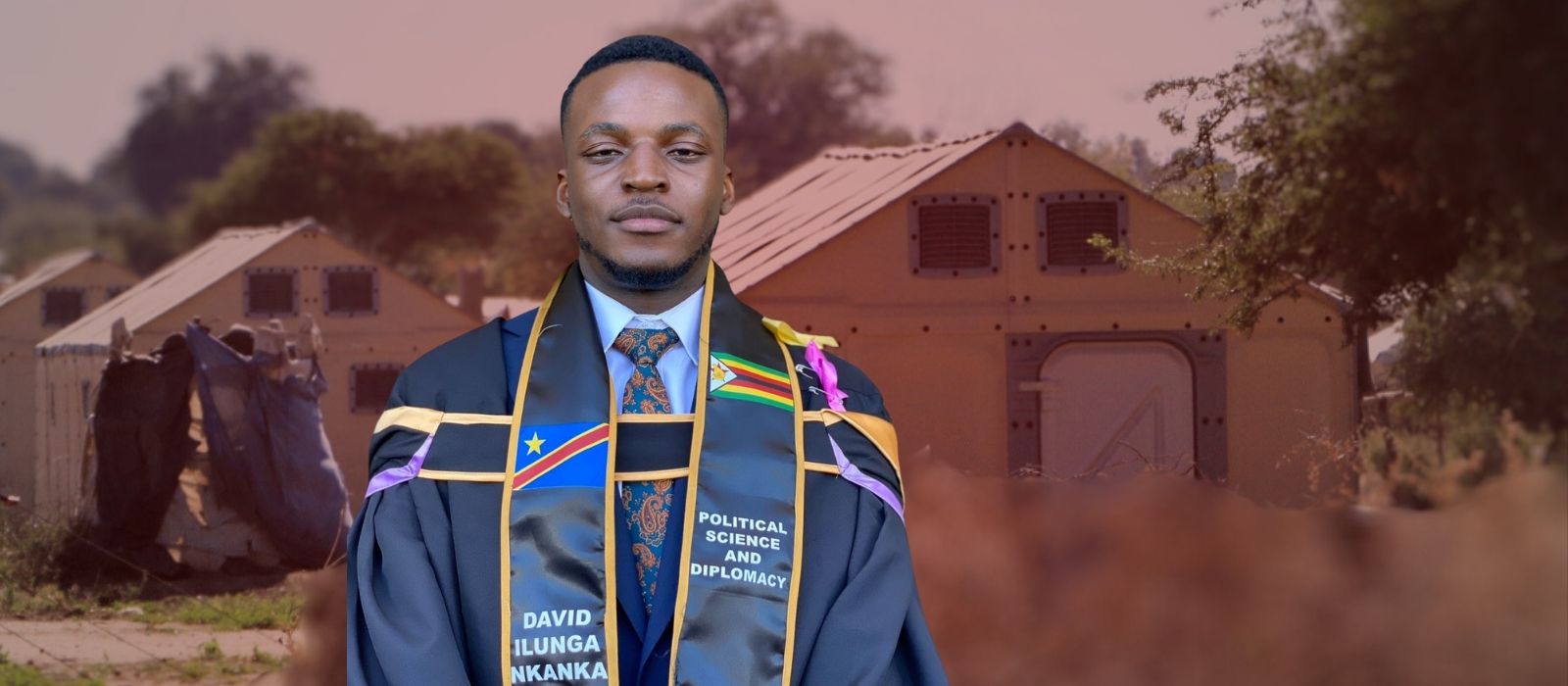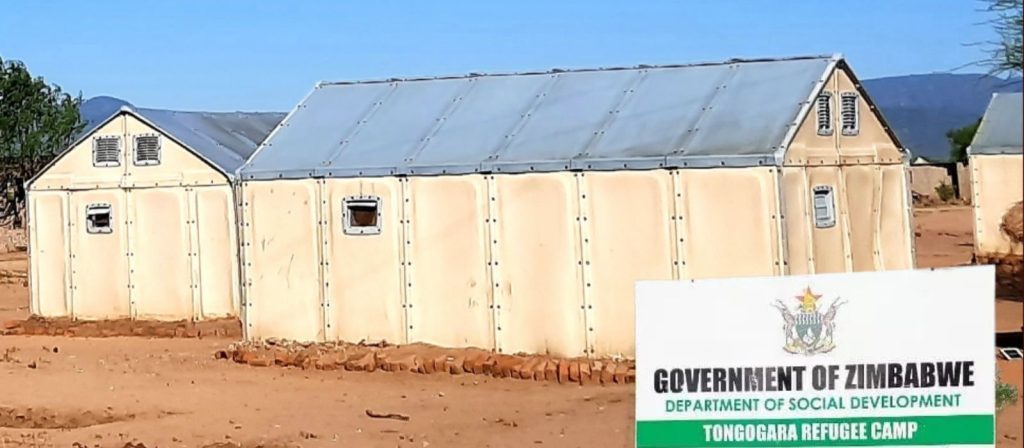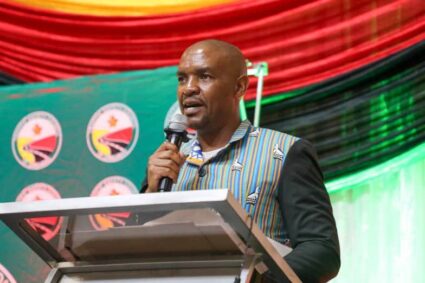
It’s not about where life places you, but how you make the most of what you have. This is a story of resilience, hope, and motivation, but more than anything, it is a story of inclusion and triumph. David Ilunga Nkanka, a 25-year-old refugee from the Tongogara Refugee Settlement in Chipinge, was recently honored as the top international and best male undergraduate student at the University of Zimbabwe, where he is graduating with a degree in Political Science and Diplomacy.
David arrived in Zimbabwe with his family in 2003, and through the support of a church sponsor, he attended Vainona Primary and High School. In August 2020, he enrolled at the University of Zimbabwe to pursue his dream of becoming the President of the Democratic Republic of Congo (DRC), his home country.
David is a firm believer that education provides a fighting chance in life, and he now plans to apply for scholarships to pursue a Master’s in Criminal Justice, aiming to study at either Harvard or Oxford University.
The Tongogara Refugee Settlement, which also hosts Ethiopians, Rwandese, and Mozambicans, presents its own challenges. When asked about how his status affected his university experience, David shared that he kept it private to avoid stigma, refusing to be limited by labels. However, he recognizes the need for improvements at the settlement and in the education system to make university education more accessible to all.

Speaking on the DRC, David highlighted that the country’s struggles are tied to the exploitation of natural resources such as cobalt and coltan, which are critical in the manufacturing of tech products for companies like Apple. Despite these resources, many Congolese do not benefit due to unsafe working conditions, child labor, and environmental degradation in the mining industry.
David calls for big corporations to take responsibility for their supply chains and for stronger governance and fair distribution of wealth in the DRC. Systemic change and global cooperation are essential to ensuring that the country’s resources improve livelihoods and support sustainable development.


